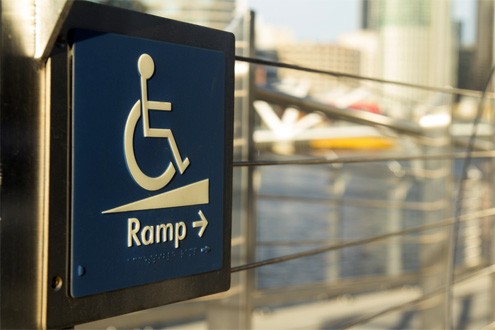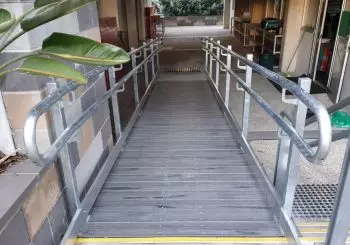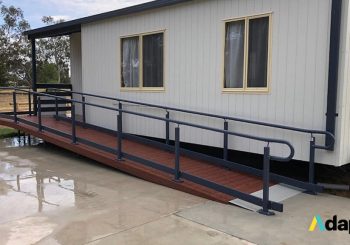Disability ramps enable those with mobility issues and individuals who use wheelchairs and other mobility devices to independently and safely enter and exit buildings.
Many portable ramp options can be used to improve access to vehicles. The type of ramp you choose will depend on the setting, the available space, your requirements, and budget. You can set up wheelchair ramps leading up to doors or even from a garage into the house and over difficult-to-navigate thresholds.
Ramps are excellent solutions for those dealing with everyday issues of having a disability. These features help them overcome the challenge of climbing up and down stairs or similar constructions that can prove to be a hurdle for smooth movement. According to the Australian Human Rights Commission, almost 2.96 million (20% of people in Australia) have a disability.
This number is ever on the rise, particularly as the Australian population ages. Of all these individuals with a disability, 86% experience severe limitations in various core activities such as communication, self-care, or mobility. Mobility limitation is increasingly becoming the most common type of functional disability.
DDA Guidelines On Wheelchair Ramps
The DDA has made a significantly positive difference in the lives of people that have disabilities. Their guidelines ensure better access to transportation, buildings, and employment. The Disability Discrimination Act requires employers to ensure there are facilities in place to make workplaces easily accessible for wheelchair users. Even strata property and other residential rental property owners need to have ramps installed to the common areas.
Disability ramps are available in a variety of materials, including wood, steel, concrete, and aluminum. These ramps are ideal for commercial & residential settings. Reliable and well-established accessibility equipment companies like us at Adapta design disability ramps to meet client requirements. We have a range of layout, configuration, colour and styling options so you can get the type of ramp that suits your needs, setting, and budget.
Types of Ramps
When it comes to ramps, there are different types available such as:
1. Aluminium and Steel Ramps
Once these types of ramps are installed, they become part of your property and removing them isn’t easy. These could be made of wood, aluminium, or steel. Many people like the idea of having aluminium and steel ramps. They are not permanent features and can be relocated to a different site if required. These ramps are incredibly reliable, durable, and strong. The materials are recyclable and very easy to maintain, as well. They have skid-resistant surfaces, which also makes them a safe option. Aluminium and steel ramps are cost-effective and offer value in the long term. The durable coloured coating makes them more resilient than regular steel ramps that are painted later. Most of these products come in modular form, which means you can create a customized solution using the configuration you like.
2. Wooden Ramps
There are many different types of wooden ramps available, but these are more suitable for settings where permanent structures are required. The ground needs some digging at the site where these structures are to be installed. Wooden ramps are sturdy but require considerable maintenance and care. They can become impacted by exposure to climatic changes and rain etc. which makes them a costly option in the long term.
As you can see, there are many benefits to installing ramps from Adapta. They are made of Colorbond steel and are available in a variety of layouts, colours, and configurations. You can call 1800 232 782 or contact Adapta through this form, and one of our representatives will contact you shortly.



